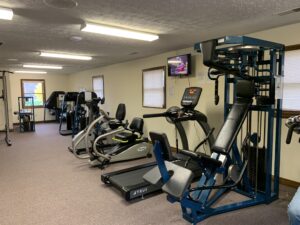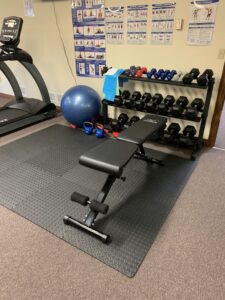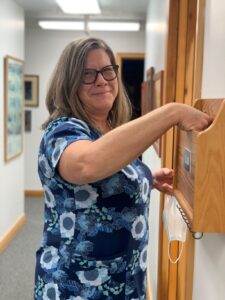Employee Spotlight: Rhonda Parker, DNP, APRN, FNP-C, PMHNP-BC
 Barbour Community Health Association is pleased to welcome Dr. Rhonda Parker, DNP, APRN, FNP-C, PMHNP-BC to the BCHA team as a psychiatric nurse practitioner for all sites.
Barbour Community Health Association is pleased to welcome Dr. Rhonda Parker, DNP, APRN, FNP-C, PMHNP-BC to the BCHA team as a psychiatric nurse practitioner for all sites.
Originally of Charleston, West Virginia, Dr. Parker received her BSN at Medical University of South Carolina, MSN/CFNP and DNP at Frontier Nursing University and her post Master’s, PMHNP at University of South Carolina. She is certified in family, palliative/hospice, and psych/mental health services.
We chatted with Dr. Parker to find out more about her role as psychiatric nurse practitioner and what she’s looking forward to in that position.
Q: What types of conditions do you treat or work with?
A: I work with patients who struggle with issues affecting their mental health including stress, depression/sadness, nerves/anxiety, concentration/memory, fear/paranoia, addiction concerns or anything that makes you feel “not like yourself.”
Q: What is the ideal patient/who should seek your care?
A: Anyone interested in dealing with their mental health issues from a “whole-person” approach. Medication is often appropriate in conjunction with counseling.
Q: What type of patient/condition should be referred to you?
A: People willing to explore medication options as part of their treatment plan, or individuals that have primary care prescribing psychotropics (medication for depression, anxiety, etc.) but they are still experiencing unpleasant symptoms.
Q: Describe yourself/your professional style in 3 words?
A: In three words, I would describe myself as exceptionally laid back.
Q: Anything else that you would really like potential patients to know about you?
A: We are integrated with your Primary care providers at Belington and Myers clinic to provide you with expert mental health care in Barbour county. In the past, patients have had to travel out of the county to receive these services, creating another barrier to care. With our exceptional behavioral health psychologists and therapists, medication management rounds out BCHA’s mental health options.
To schedule an appointment with Dr. Parker, call 304-823-4000.
Why Choose a Nurse Practitioner as a Primary Care Provider
Why Choose a Nurse Practitioner as a Primary Care Provider In the world of healthcare, Nurse Practitioners play a vital role in delivering quality
FAQs About Our New Radiology Department
FAQs About Our New Radiology Department We are so excited to offer our communities a new service here at Barbour Community Health Association (BCHA)
The Ins and Outs of Healthy Inside and Out
The Ins and Outs of Healthy Inside and Out Are you wanting to get healthier, but you aren’t quite sure how to do it?



 4. Boost in confidence.
4. Boost in confidence. Barbour Community Health Association
Barbour Community Health Association